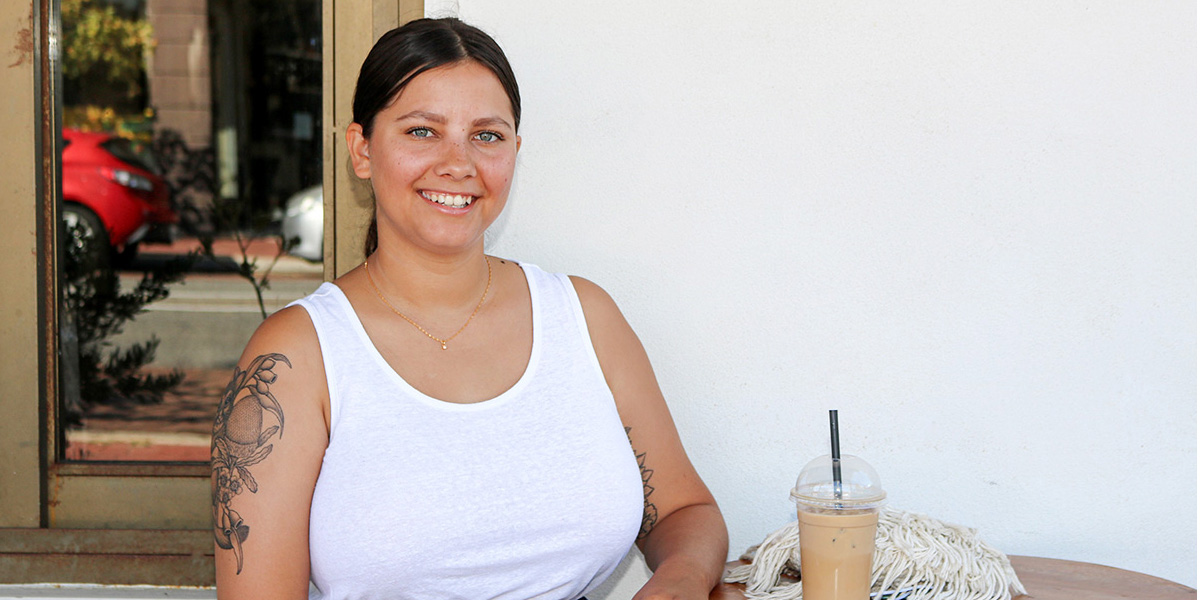Ballardong woman and AHCWA staff member Keisha Calyun will begin a Bachelor of Medicine at Curtin University this year, after winning the Puggy Hunter Memorial Scholarship which supports Aboriginal and Torres Strait Islander undergraduate students studying health-related disciplines.
“Transitioning from the corporate world to Aboriginal health three years ago, immediately I knew this would be my future career pathway,” Keisha said. “I have seen the significant, positive outcomes of having an Aboriginal doctor working with community. I work with doctors who advocate and have the power to influence change. These are my role models.”
Keisha, who completed Indigenous Pre Medicine and Health Sciences at Curtin University last year, works as an Information Management Officer for AHCWA’s Mappa project, an online health service mapping platform that aims to stop the displacement of regional and remote people from their family and country when needing to seek health care.
In 2019, she was awarded a WA Youth Award in the Hope Community Services Positive Achievement Category, recognising her important contribution to society through her work on the project.
Keisha is one of just two Western Australian representatives on the inaugural First Nations Youth Health and Wellbeing Committee, which works to develop and implement innovative solutions to bring about Aboriginal health equity.
The 26-year old, who grew up in Toodyay, is a member of WA Aboriginal Health Ethics Research Committee; where she brings a youth perspective to ensuring research projects are carried out in culturally safe and secure ways. She is also part of a Noongar women’s cultural dance group, Kwarbah Djookian and has performed at the Fremantle Dockers AFLW Indigenous Round, Reconciliation WA National Reconciliation Week Breakfast, Wardarnji Festival and various community events.
“I am interested in regional and remote Aboriginal health. When I am a doctor, my intention is to work in this space,” Keisha said. “A driving influence for me is knowing that most of the doctors working in our communities are non-Aboriginal. Whilst they do many great things for Aboriginal people, it would be empowering, provide more self-determination and ensure better outcomes if Aboriginal doctors were achieving these outcomes.”
For Keisha, becoming a doctor was something she had dreamed of, but she never thought it was possible. Now, she wants to be a role model and motivate other young Aboriginal people in the way that she has been inspired.
“I wish to carry on the legacy of the leaders who came before me, making a difference for our people, and their health. I believe the best outcomes for Aboriginal people will come from ‘our health in our hands,” she said.

